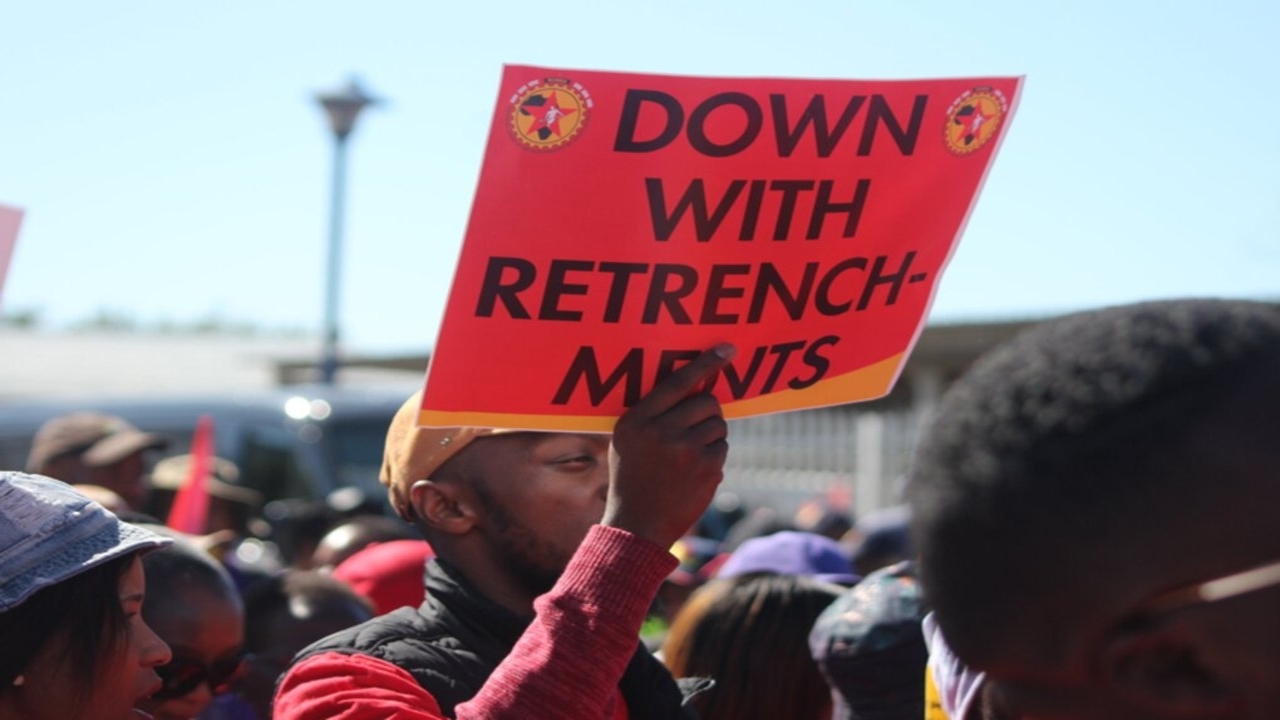The National Union of Metalworkers of South Africa (NUMSA) and the South African Cabin Crew Association (SACCA) plan to appeal a labor court’s ruling which dismissed their application seeking an interdiction against the decision of South African Airways (SAA) to close 11 routes.
Arguing that these closures will lead to massive retrenchments, the unions pointed out that this decision made by SAA’s Business Rescue Practitioners (BRPs) is in violation of section 189 of South Africa’s Labor Relations Act (LRA). The section mandates that the employer consult with the unions to explore alternatives before a decision to retrench can be made.
SAA has been placed under business rescue since December 5 to save the state-owned airline from a collapse. In this period, the company is protected from claims by the creditors, in order to give time for BRPs who take charge of the company to work out and implement a turnaround strategy.
The unions argue that the main reason for the company’s stress is the financial drain due to the contracts outsourced to private companies at inflated prices. Insourcing the workers hired by contractors and undertaking these tasks within the SAA would save the company’s millions, they argue.
Instead of taking this route to stabilize the company’s finances, the BRP decided to close 11 routes. This, the unions argue, will lead to mass retrenchments, and hence cannot be decided without consultation.
In the collective bargaining agreement that was signed between the management and the two unions on November 25 to bring the week long strike action at SAA to an end, the former had agreed to take the route of a training layoff scheme, instead of retrenchments.
Accordingly, where job-shedding was required in the interest of the company’s financial stability, the workers were to be placed in training in different jobs later. During these six months, SAA was to pay only 25% of their salaries, with the remaining 75% to be funded by the Services Sector Education and Training Authority (SETA).
At court, however, the BRP’s representative argued that the closure of routes would not necessarily lead to retrenchments, without indicating any plans as to where the workers currently operating in these domestic and international routes can be reallocated.
The judge, on February 14, sided with the BRP’s claim. He dismissed the unions’ application seeking an interdiction against the closures on the grounds that there is no evidence that the company had planned for retrenchment. Hence, there was no need for the BRP or the management to consult with the unions over the route closures, he said.
“Since the duty to consult has not arisen, the powers of this court to compel a fair procedure and or interdicting and restraining SAA are severely circumscribed. For all the above reasons the application must fail,” Judge Graham Moshoana said. The unions have termed this ruling a “travesty of justice”.
Evidence overlooked
Speaking to Peoples Dispatch, NUMSA’s national spokesperson Phakamile Hlubi Majola talked about the evidence of the fact that the company has contemplated retrenchment. In fact, Section 189 (retrenchment) notices were already served last November to over 900 workers. It was only to negotiate an end to the week-long strike action which had paralyzed SAA that the management agreed in a collective agreement in November to defer these notices.
“But it was deferred only until January 31,” Majola said. There were two meetings after this date where the BRPs indicated their retrenchment plans. “On February 4, they told us that they needed to radically speed up retrenchments and that these retrenchments just happen outside of the Section 189 process. And on February 6, they then confirmed that they are cancelling 11 routes. The cancellation of these routes will be effective on February 29.”
These indications, along “with the fact that the company did not explicitly withdraw the Section 189 notices,” demonstrates that the intention of retrenchment was behind the decision to close routes, she argued.
She further added, “We have a correspondence from one of the board members Martin Kemp who confirms at the end of January that there is a section 189 process underway, and that the BRPs are the ones implementing that process.”
Apart from these, the unions sought to introduce an audio recording, allegedly of one of the members of the SAA management breaking the “bad news” at a meeting with the workers in Durban on February 7. From a copy of the recording accessed by Peoples Dispatch, she can be heard saying that she was not yet updated on the “details of the retrenchment package”, but confirmed that the workers of the branch would be retrenched.
However, the judge refused to admit this piece of evidence in court. The Application for Leave to Appeal filed on February 14 by the unions in the court (a procedure that has to be followed in order to challenge the ruling in a higher Labor Appeals Court), states that “Court.. erred in dismissing the Applicants’ application to introduce new evidence, which.. conclusively proved the untruthfulness of the” management and the BRP.
Therefore, refusal to admit this evidence “did not serve the interests of justice and deprived the Court of the opportunity to ensure that the truth prevailed in this matter.”
The application also pointed out to a number of other faulty premises on which the ruling was based. For instance, the ruling placing certain conditions which must be met for the court to objectively determine whether an employer has actually contemplated dismissals. According to the judgement’s paragraph 11, this would require the employer to “formulate a view that it must dismiss employees”.
Calling this “incorrect and at odds with the jurisprudence”, the unions’ application states that the word “must” necessarily “implies a final decision and not a mere contemplation”. However, the labor law mandates consultation before any final decision can be made.
With a cache of evidence and jurisprudence to justify its applicability, “we are convinced a higher court will come to a different finding,” Majola said.





